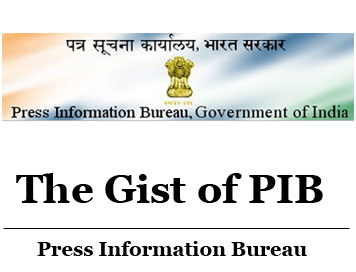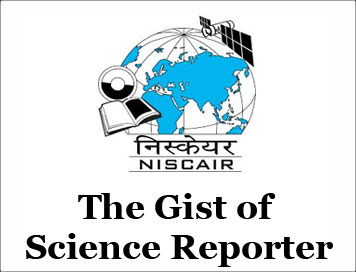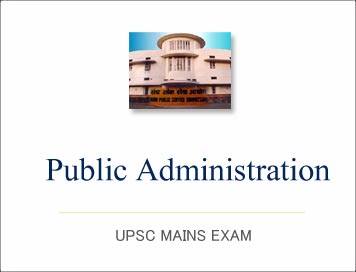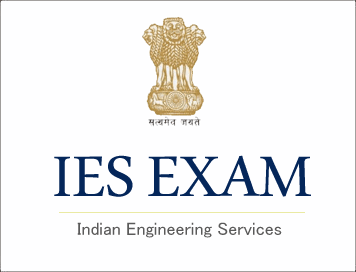
Sample Material of Current Public Administration Magazine
(FEBRUARY 2023)
1.Accountability & Responsibility
Fareed Zakaria argues in Future of Freedom that democracies are hardly perfect and while there are many illiberal democracies, there are some that are excessively liberal. India is no exception. Nobody can claim that its democracy has attained perfection. Like other democracies, it too has its flaws. Eternal vigilance and a constant endeavour to root them out are necessary.
Such efforts over the past several decades have resulted in creating strong political awareness. The Indian electorate can no longer be taken for granted by parties and leaders. Both the BJP and Congress have had firsthand experience of this. Indira Gandhi and her son Sanjay were cocksure about victory in the 1977 elections but the electorate handed them the worst defeat in 25 years. Atal Bihari Vajpayee sought reelection six months ahead of schedule riding on the “India Shining” campaign in 2004, but the people decided to give the mandate to the Opposition coalition led by the Congress.
In the last five years, while they overwhelmingly supported Narendra Modi for the national government, they also reposed trust in Opposition parties in as many as 14-15 states. That is evidence of the robustness of Indian democracy.
2. Indian Government and Politics
-
Nobody loves local government
This year is the 30th anniversary of the passing of the 73rd and 74th Amendments. Indian governance was always over centralised. But it is a sign of the times that even the modest steps these amendments took towards decentralisation now seem to belong to an alien intellectual and political world. In a moment of authoritarian centralisation, the idea of deepening democracy by creating structures of inclusive governance seems like a pipe dream.
Indian democracy since Independence never really had a commitment to decentralisation. Despite performative obeisance to the idea by the state, decentralisation has always been hostage to a number of contradictory impulses. Initially, there was the presumption that centralised power would be required to break the power of local elites, never mind the fact that there is little evidence that the outcomes of decentralisation would have been worse than what we eventually got. The existing tiers of government, both central and state, wanted to hoard most of the resources. India has the lowest spending on local government as a proportion of resources. And the ideology of Gandhian decentralisation, oddly enough, militated against genuine political decentralisation.
For, in this imagination, decentralisation was not a devolution of power and resources. It was the creation of an idealistic imagined space that would be above politics; that would free it from the usual give and take and contests of politics. Local government would be held to a higher standard than other tiers of governance. For example, we take partisanship and competition to be central to politics elsewhere. But somehow we expected panchayats to be this font of consensus (some states give incentives for election by consensus). And, it has to be said, there was no serious demand side push for decentralisation.
3. Social Administration
-
An Internet image on Women’s Day
A video of the BJP Lok Sabha member from Kolar, Karnataka, S Muniswamy, berating a woman for not wearing kumkum or vermillion on her forehead, has given rise to a controversy. In the video, the minister is seen inspecting stalls exhibiting products made by women, on International Women’s Day (March 8). At one of the stalls, the minister confronts a woman named Sujatha and subjects her to a barrage of hostile questions. “Why is there no kumkum on your forehead?…Apply kumkum on your forehead at once,” he tells her. He continues in a belligerent voice, “Your husband is alive, isn’t he?”
There are many ironies here. A video displaying untrammelled patriarchal authority becomes the internet image of a day supposedly dedicated to the celebration of the empowered woman. An elected representative of a political party, which repeatedly and unendingly proclaims its “concern” and “support” for women, displays with completely unselfconscious authoritarianism the patriarchal framing and the conditional nature of such “support”. Finally, the woman celebrated on Women’s Day, supposedly liberated, individuated and invested with the agency to make choices, is shown up for her real worth in a patriarchal society as the object of exchange in endogamous marriages that maintain the purity of caste and religion.
The incident is symptomatic of the larger malaise of a society in which the structural inequalities of gender are normalised and maintained through intersecting hierarchies of power and social stratification. In such a society, the woman’s primary and essential gender identity is organised through embedding her within the endogamous marital and familial unit. Every other possibility of being for her is considered to be an accretion that can be sloughed off as and when it is found to be unruly or vestigial to patriarchy.
4. Current Topics
As the world’s fastest-growing major economy with rising energy needs, India will account for approximately 25 per cent of the global energy demand growth between 2020-2040, as per BP energy outlook and IEA estimates. Ensuring energy access, availability and affordability for our large population is imperative. This makes our case sui generis and has driven our energy strategy, now acknowledged the world over as being pragmatic and balanced.
When petrol and diesel prices went up by 35-40 per cent in the US, Canada, Spain and the UK, and despite importing over 85 per cent of its crude oil requirements and 55 per cent of its natural gas requirements, prices of diesel in India have actually gone down in the last 1 year. When several countries in our neighbourhood have had dry outs and power cuts to manage demand, there has been no shortage of fuel anywhere in India, even during floods and natural calamity situations.
This was made possible due to the vision of Prime Minister Narendra Modi for ensuring energy justice. The Centre and many BJP-ruled states announced massive cuts in excise duty and VAT rates, twice. Oil PSUs, being good corporate citizens, absorbed huge losses to ensure that the massive hikes in the prices of crude oil and natural gas in the international market were not passed on to Indian consumers. Subsidised APM gas for the city gas distribution sector was drastically increased even at the cost of cutting down the captive use of domestic gas by our own PSUs. We even imposed an export cess on petrol, diesel and ATF, and a windfall tax on domestically produced petroleum products to prevent refiners and producers from profiteering at the cost of domestic consumers.
5. Indian Administration
-
In politics and bureaucracy, women are severely under-represented
India has one of the fastest-growing economies in the world. For this year alone, IMF has forecast 6.8 per cent growth for the Indian economy in comparison to 1.6 per cent for the US. Predicted to be the third-largest economy in the world by 2030, India is expected to be behind only the US and China. Despite its economic growth, women’s participation in the country’s economy, polity and society has not kept pace.
Elections in India have witnessed a striking contrast in recent times. The female voter turnout has increased in the country. Seven out of eight states that went to the polls in 2022 saw a jump in female voter turnout. Though this sounds promising, the increasing proportion of women voters seen in local, state and general elections has not translated into more women contesting elections.
As per data compiled by the Inter-Parliamentary Union (IPU), in India, women make up 14.44 per cent of the Lok Sabha. A glance at the data in the latest available report of the Election Commission of India (ECI), shows that women represent 10.5 per cent of all Members of Parliament as of October 2021. For all the state assemblies, female MLAs’ representation stands at an average of 9 per cent. India’s ranking in this regard has fallen over the last few years. It is currently behind Pakistan, Bangladesh and Nepal. The data for May 2022 showed that women’s representation in Pakistan was 20 per cent, in Bangladesh 21 per cent, and in Nepal was 34 per cent. Since Independence, women’s representation in Lok Sabha has not even increased by 10 per cent.
The representation of Indian women in bureaucracy is also lacking. Women’s participation is low enough for several public services jobs at the Centre and states to facilitate free applications for women candidates. Despite this, as per Indian Administrative Services (IAS) data and the central government’s employment census of 2011, less than 11 per cent of its total employees were women. In 2020, this reached 13 per cent. In fact, out of a total of 11,569 IAS officers entering service between 1951 and 2020, only 1,527 were women. Further, only 14 per cent of Secretaries in the IAS were women in 2022 — 13 out of 92 posts. There are only three women chief secretaries across Indian states and union territories.
India has never had a woman cabinet secretary. There have been no women Secretaries of Home, Finance, Defence and Personnel, either. As per the latest official data of the Union Public Services Commission (UPSC), in 2019, nearly 3,67,086 women applied for the UPSC examination; 1,77,611 women appeared for the examination and 1,534 women qualified; 7,68,175 male candidates applied at the same time, out of which, 3,90,671 appeared for the exam and 10,311qualified.








